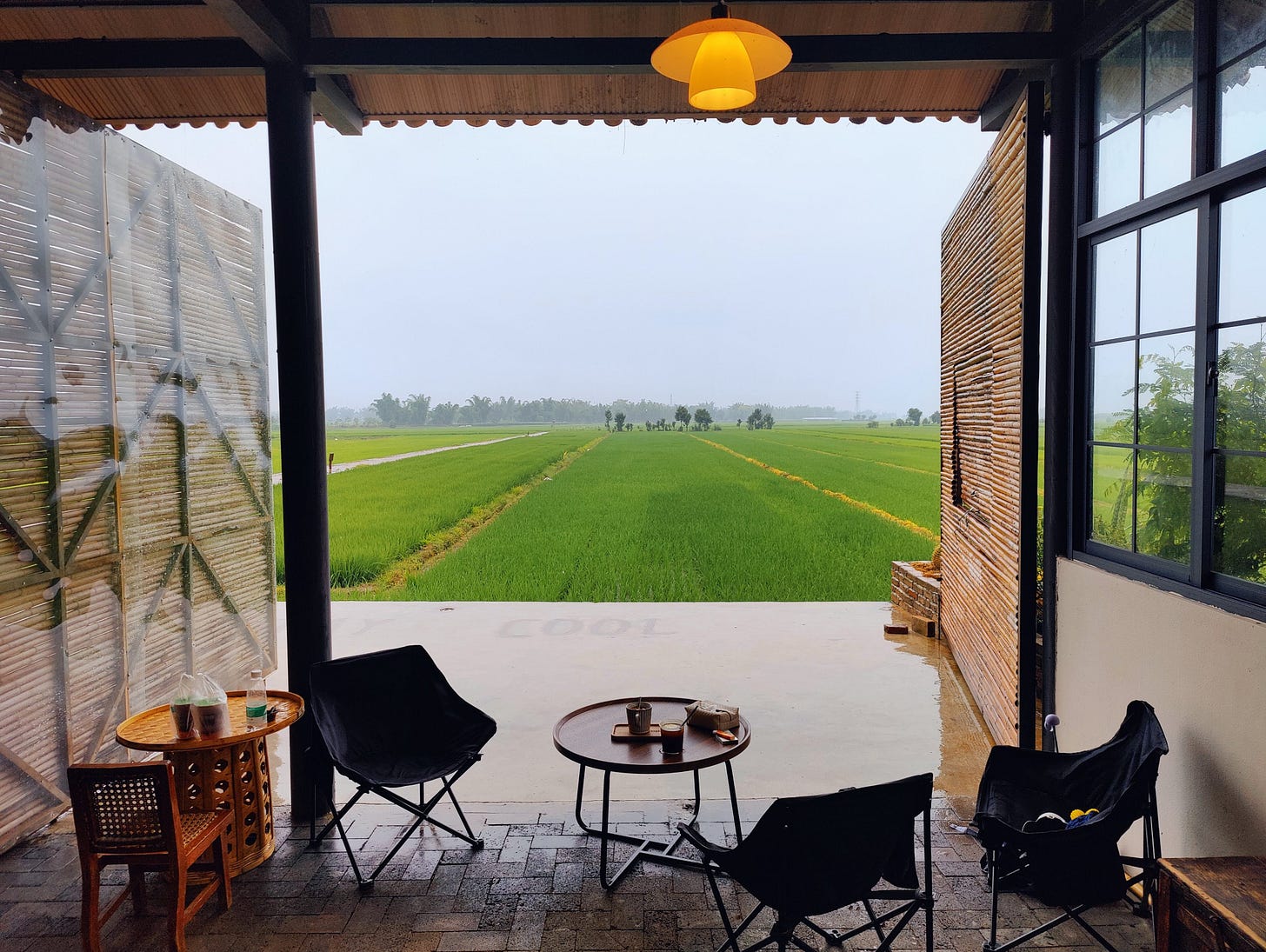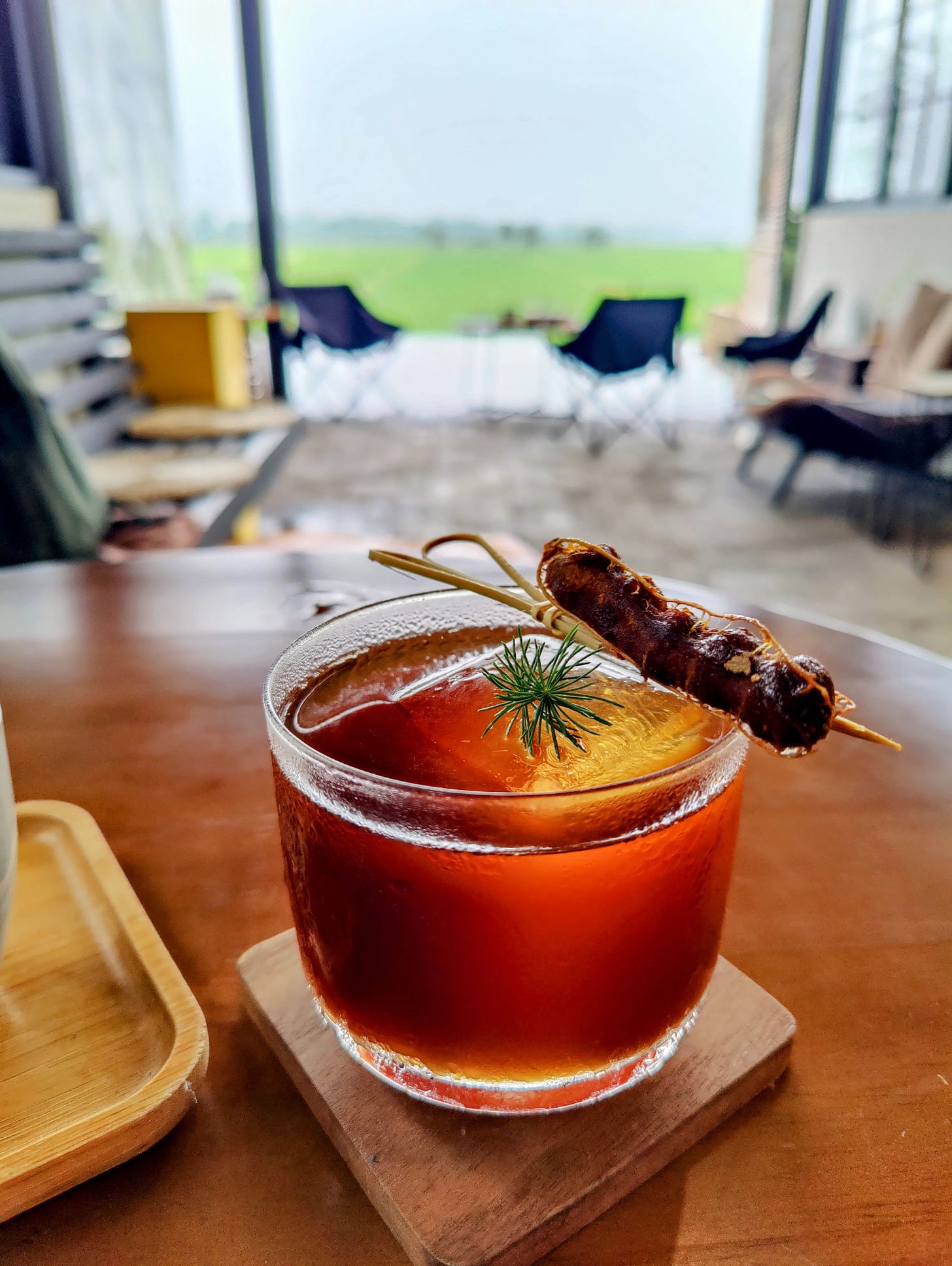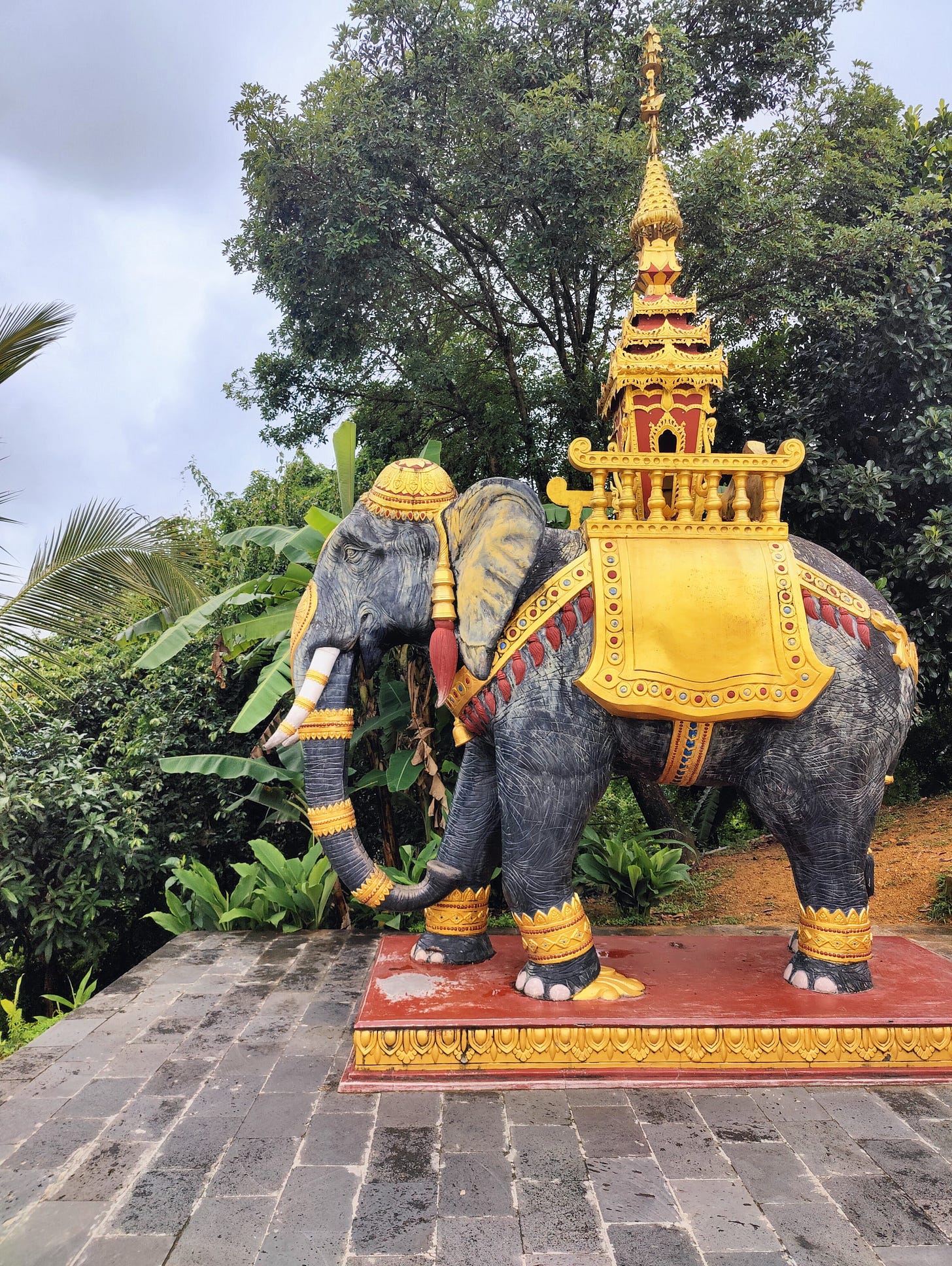Mangshi: massages, markets and shiny pagodas
First stop on our tour of Yunnan was Mangshi. Here are some words and pictures!
First stop on our tour of Yunnan Province was Mangshi 芒市. Originally named after an ethnicity who inhabited the area in the 1400s, the city later became known as Luxi. According to Wikipedia, nearly 5,000 people participated in a 2008 survey, in which 97% supported changing the name back to Mangshi, so they did. It’s in the Dehong Dai and Jingpo Autonomous Prefecture and is roughly 30km from the China-Myanmar border.
Our plane banged onto the runway at Mangshi airport, taking everyone on board - except hopefully the Captain and First Officer - by surprise. Our window blinds were closed, so we'd seen nothing of our approach. The airport at Mangshi is a military installment and they didn't want us taking grainy cell phone snaps through the scratched plastic-covered plane windows, so it was blinds down and "good luck in the event of a cabin fire”.
Exhausted from our two flights from Shanghai, Zoe and I checked into our hotel and promptly dashed straight out for a 100 minute full body - they walk on your back - massage. The male concierge in the giant wooden building led us upstairs and showed us to a room with three beds in it. The term 'massage' has been conflated with 'other' services in many parts of the world. This was a notion I couldn't shake as we walked through the open-all-hours backrub empire, feeling increasingly seedy with each footstep.
Two women from Myanmar came into the room and dropped off some clothing for us to wear during our ordeal. Imagine hospital-scrubs hybridised with a judo kit, mine in green, Zoe’s in light pink. Actually, here’s a picture :
Dressed and ready for action (I mean sleep, I was ready for sleep!) the two women returned and the 100 minutes started. They began by placing our feet in a bucket and scrubbing them. I felt like a 19th Century Aristocrat. Feet clean, the massage began and... I fell asleep. Not once, but multiple times. I'm sure it was great.
Next morning, we visited Stay Cool, a coffee shop on the outskirts of town. Its location is so outskirty, the Didi (like Uber in the West for a fraction of the price) dropped us on the corner of a huge rice field. Intersecting it was a concrete path, lined with banana trees and the occasional painting. Our umbrellas mostly defended us from the heavy rain as we followed the path for several hundred metres and soon arrived at the cafeine shop.
Walking through the entrance, I saw exactly why they'd chosen to open a coffee shop here: it was divine! Like one of those flashy wedding venues that the guests have to drive three hours down a gravel road, then walk 1km through a field to reach, Stay Cool coffee is banking on its location as its drawcard. Its largely open bamboo and wooden living space looks out across the sodden, green paddy fields. It's a wholly unique outlook. Its other drawcard is the delicious (we might call 'artisan', whatever tf that means these days) coffees on offer.
We ordered a cold brew (酸角冷萃) and a Gaoligong Mountain pour-over (高黎贡山手冲). The latter’s black nectar drained from the clay pot onto my tongue and I immediately knew I was drinking something premium. It was bitter in all the right places, but with a fuller kick. The cold brew came served with tamarind fruit, resting on the rim, like a cocktail. Tangy, tart and textured like a date, it was the right accompaniment for the chilled flavours that emerged from the glass upon sipping. Or something. I'm not an expert coffee taster and nor do I claim to be in this day and age when anybody can say they are anything. That was just my attempt at iterating that the coffee here was damn delicious.
The rain stopped, so we took another Didi along the jackfruit-lined streets of Mangshi to the Menghuan Silver Pagoda. Perched high on a hill, this contemporary structure is of great importance to the local Buddhist College, but apparently of greater importance to wannabe social media influencers. The mirror-stage was too popular for me to get a proper turn. The weather was overcast, anyway.
It shares the hill with the Menghuan Grand Golden Pagoda, of almost equal height, but we didn't pay to get into that one. Instead, we browsed the market between the two pagodas. Boiled peanuts and bamboo-encased rice cakes were just some of the treats we tasted.
We walked to the bottom of the hill and rented a couple of electric scooters, using the Alipay app. After a few wobbles (with the app!) we were on bike-back and blazing down the streets, vegan buffet-bound. The same, lawless-feeling streets that we had cycled in Shanghai. It felt so southeast Asian.
The next morning we visited another market. Situated on a slender street, all the vendors had set up their stalls on what would usually be the footpath, while we prospects walked the middle of the road, eyeing their wares. Regular shops, selling anything from local ethnic clothing to shrink-wrapped ‘Neki’ trainers opened as usual behind the stalls.
Unfortunately, nobody had thought to close the street to traffic, so browsing was frequently interrupted by the blaring horn of a humongous SUV crawling impatiently through the crowds. Scooters were also present, but that goes without saying. The audible chaos was unsettling. While trying to concentrate on what weird and wonderful fruit was offered for sale, my heart rate was constantly being raised to one million, under threat of being turned into a pancake by a Range Rover. Markets, eh? They ain't what they used to be.
Other highlights of Mangshi included being stared at as the only ‘foreigner’ at the night market, being stared at as the only ‘foreigner’ in the library, going for a ‘hair wash and massage’ combo (yep, only ‘foreigner’ in there too) and stepping out into the town square on Saturday night to find a flashmob disco - known in China as ‘square dancing’, because that’s where it takes place. The scenes were full-on happiness-inducing. Yes, I was the only ‘foreigner’ there, too:
That was Mangshi. I’ll leave you with this pic of a gilded elephant, beside the Menghuan Grand Golden Pagoda.








